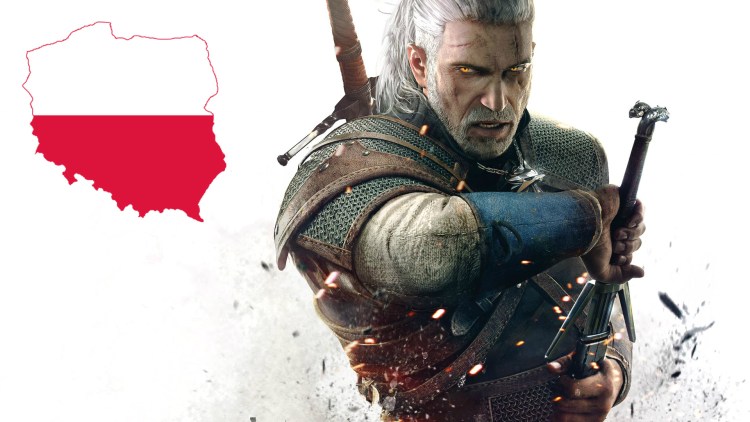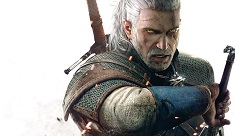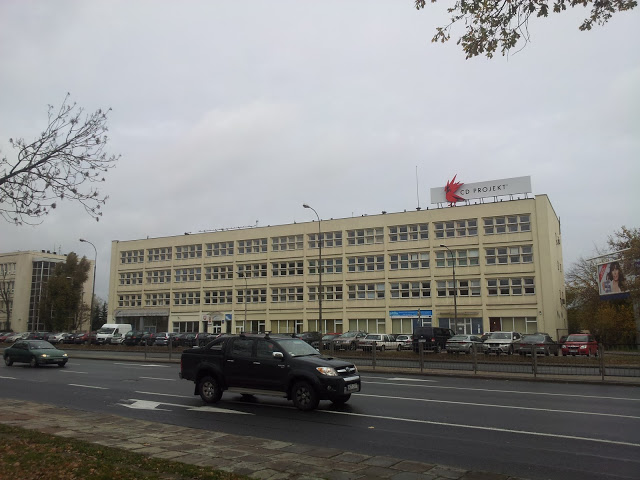The video game industry in Poland is fast becoming one of the most respected and prolific in Europe. GamesBeat spent a week visiting some of the game development and film studios making a worldwide name for themselves. You can read the stories that came out of our visit here, including part two of this in-depth look at the rise of Poland’s game industry. The Polish government paid for Daniel Crawley’s trip. Our coverage remains objective.
It’s almost impossible to talk about gaming in Poland without mentioning The Witcher. It’s the iconic role-playing game, based on a uniquely Polish series of fantasy novels, that announced the country’s presence on the global market, and its name came up in nearly every meeting I had during my six days in Poland last month.
But the Polish game industry, worth an estimated $279.6 million in 2014, is about more than one game.
It’s an amalgam of hundreds of studios, large and small, built from scratch in a country that emerged just 25 years ago from four decades of communist oppression.
It’s an industry built by kids who grew up programming ZX Spectrum computers, sprawled on the living room carpets of their Warsaw apartments, trying to make some magic happen on glowing cathode ray tubes. Kids who taught themselves to code, create computer graphics, and design games, and who now run some of the most dynamic creative studios in Europe.
And it’s an industry that the Polish government now realizes is more than just kids messing around with computers. So much so that the then-Polish prime minister, Donald Tusk, presented President Barack Obama with a video game on his visit to the country back in 2011.
That game, of course, was The Witcher 2, an fantasy role-playing epic.
Copyright, what copyright?
Back in the early ’90s, it just wasn’t possible to buy video games in Poland. At least not official ones.
Warsaw’s old national stadium had a huge outdoor market where you could buy pirated games from makeshift stalls. Some of the Russia sellers even went as far as localizing the language of the games they were selling to a Polish audience. No-one bothered about copyright infringements.
The market is long gone now, replaced by a shiny new national stadium that hosts international soccer matches and Elton John concerts, but the memory of those times remains.

Above: The new national stadium in Warsaw, previously home to pirated game sales.
“We didn’t really have copyright law,” said Michał Platkow-Gilewski, the head of marketing at CD Projekt Red. “Or maybe it existed but it was not something anyone could use because we couldn’t buy the legal software. When I was a teenager, I couldn’t buy the real games.”
He told me about a huge store in Warsaw where you could buy copied music to order: “That was something normal.”
Even with piracy so deeply embedded in the nation’s psyche, CD Projekt’s founders — Marcin Iwiński and Michał Kiciński — thought they could find a way of convincing people to buy stuff legally. So they bought the rights to bring the role-playing game Baldur’s Gate to Poland in 1999.
It was the first truly successful localization on the Polish market, recalls Platkow-Gilewski, and a dangerous investment at the time. “No one believed the numbers would be big enough to justify the spending,” he said.
Iwiński and Kiciński paid a host of famous Polish actors to voice the game and then packaged it with a parchment map, a Dungeons & Dragons rulebook, and an audio CD, and they took to the road. The game sold thousands of copies by offering something special that the pirates couldn’t offer.
A national treasure
Although CD Projekt Red started out distributing games, it wasn’t long before the company started to make one of its own. Iwiński and Kiciński decided to take on one of Poland’s best creative treasures — The Witcher fantasy novels by Andrzej Sapkowski.
Starting in 2002 with a team of just 17 people, drawn from around Poland and relocated to Warsaw, CD Projekt Red started to make The Witcher for PC. By the time the game released in 2007, the team was 100 strong. CD Projekt funded this lengthy development from its distribution business, which was now growing steadily, but it took up every cent, and then some.
While it wasn’t a runaway success, The Witcher’s release drew attention worldwide. And for many Poles, it was the first time they’d stopped to notice where a video game was from.
“That was the very first game that was connected to Poland,” said Karol Zajaczkowski, head of marketing at 11 Bit Studios, the team behind the wartime strategy game This War of Mine. He told me that The Witcher made people believe, for the first time, that they, too, could make video games, even in a country not recognized for it.
Michał Platkow-Gilewski has similar memories of the game launching, years before he worked for CD Projekt Red. “I didn’t really care which game was made where, until I saw the first Witcher,” he said. “I thought, ‘Wow. We are making this game.’
“People started to be proud. Slowly, slowly, people started to talk about it. Not only gamers, but also mainstream [people]. And after some time, even politicians. Some people call it a national treasure.”
“In Poland we have a tendency to support what we are good at,” he said. “When we had Adam Małysz, our winter ski jumper, the whole country was crazy about ski jumping. With Witcher being cool, we can count on support — I hope that will never change. I think we like to be proud of something.”
So, will there be a plaque to commemorate CD Projekt Red soon? “Maybe,” he laughed. “‘Here, the Witcher was made.’”



